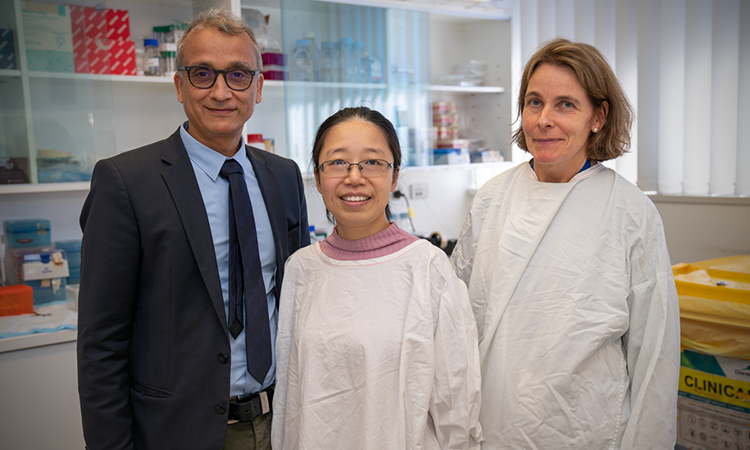Professor Ralph Nanan says there’s now more reason to ‘eat real food, mostly plants, and not too much’ because it might be the most effective primary prevention strategy for preeclampsia – a potentially fatal complication characterised by high blood pressure that affects 10 percent of pregnancies.
“It’s well known that gut bacteria ferment the food we eat and one of the products they produce, acetate, is a very important immune regulating factor,” says Professor Nanan, a paediatrician and researcher at Nepean Hospital.
“We found that in pregnant women with preeclampsia, acetate is lower than in healthy pregnancies.
“If you eat less fibre you have less acetate in your system. If mums increase their fibre intake, they can increase their acetate level,” says Professor Nanan, who is also Director of the Charles Perkins Centre at The University of Sydney Nepean Clinical School.
“Eat more fibre is a simple and affordable recommendation which everyone can understand.”
Over 1,000 women participated in the research which was published in the international journal Nature Communications.
Preeclampsia is characterised by high blood pressure, protein in the urine and severe swelling in the mother. It also interferes with the child’s immune development whilst in the womb, with some evidence suggesting a link to higher rates of allergies and autoimmune disease for the child later in life.
The researchers found in those pregnancies affected by preeclampsia, the baby’s thymus is much smaller than in healthy pregnancies.
The thymus generates, T cells (thymus-derived cells) specifically those associated with the prevention of allergies and autoimmune conditions such as diabetes.
“Highly skilled technicians at Nepean Hospital used ultrasound to measure the thymus in about 900 babies,” says Professor Nanan.
“At mid pregnancy (18 to 20 weeks) we found the thymus was already much smaller in babies whose mums had preeclampsia. The thymus remained small so that the end of the pregnancy was about the half the size of a baby in a normal pregnancy.
“Not only is the immune organ smaller but the T cells output is much lower later in the life,” says Professor Nanan.
“Infants, whose mums had preeclampsia, still had a lower number of T cells at the age of four.
“Until now the thymus has never been really taken seriously and examined in detail in perinatal medicine. Everyone thought it was just a blob of fat in front of your heart.”
The mechanisms of acetate on the developing foetal immune system were further examined in separate experiments involving mice that showed acetate was central in driving foetal thymus and T cell development.
Professor Nanan says the research may also explain the rapid increase in allergies and autoimmune conditions, such as diabetes, in those eating a typically low fibre Western diet.
The next stage of the research will be a large clinical trial conducted over many years.
“In a future prospective study we are aiming to increase the fibre intake for a large cohort of pregnant women to see if preeclampsia and allergies and other immune problems for babies later in the life can be prevented.”
The research team also included scientists and clinicians from Nepean Hospital, the University of Sydney’s Charles Perkins Centre, the Barwon Infant Study from Deakin University, Monash University, James Cook University and the Australian National University.
